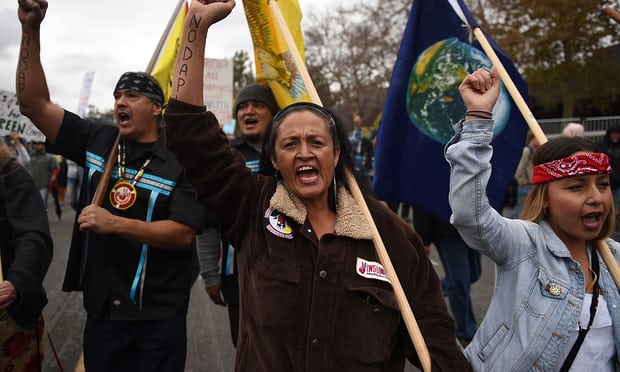Many believe the fight to combat climate change hinges on the aligned interests of capital and state. Give the Elon Musks of the world enough time and resources and they will innovate us out of impending climate catastrophe. Get the G20 in a room and they will hammer out a deal and create regulations to enforce it. Or so the thinking in some circles goes. Yet throughout history, the interests of the state have slid into alignment with big oil and big profits rather than lining up with our rivers, our air, our wildlife and our people. But the first people of this land, who often live on the frontlines of our metastasizing climate disaster, remain resolute. It is our sacred responsibility to protect and preserve this planet for future generations.
Continue reading... →Keith Brunner from Gears of Change Youth Media Project reports back from the side event “Women’s critical perspectives on the green economy” carried out during the UN Rio+20 intercessional (March 25-27) at the UN headquarters in New York.
The “green economy” will be a shot in the arm for ailing global markets- a rush of new commodities and investment frontiers, packaged neatly within a UN mandate for “sustainable development.” But how will it affect those who are already the most marginalized?
This afternoon I attended an event entitled “Women’s critical perspectives on the ‘green economy.” Participants painted a picture of a future far different from the heady visions on display at the corporate side events. The “green economy,” according to the panelists, will exacerbate already growing gender violence, urban migration and loss of traditional skills and knowledge amongst women, with women in the Global South being hit the hardest.
Isis Alvarez, with Global Forest Coalition, began the panel by noting that: “Biodiversity and the environment turned into marketable goods seems to be the current approach to conservation. And markets necessarily need privatization. But what are the consequences for women, if a resource which used to be accessible is now privatized?”
She continued: “Women usually provide their families with key resources for their livelihoods, such as fuel wood, medicinal plants, fodder, food, nuts, they collect seeds, so biodiversity means everything to them, as they depend on the non-monetary benefits of biodiversity.”
Continue reading... →
